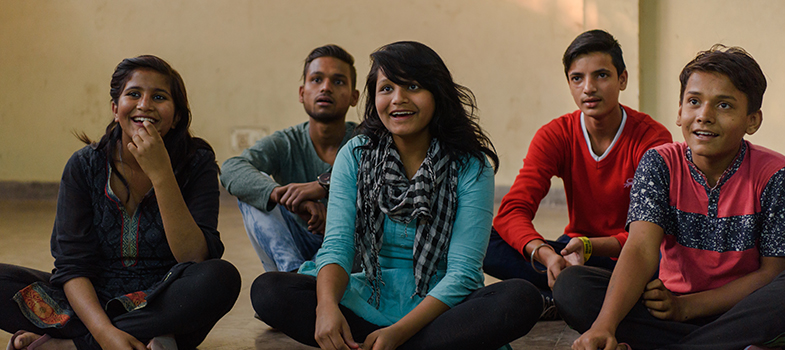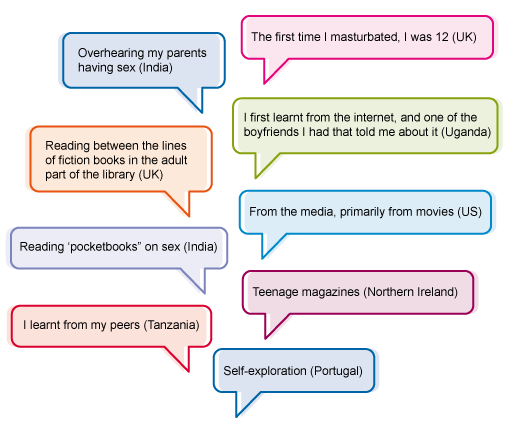2.1 Where do people hear about sexual pleasure?
As adults it’s often hard for us to remember where we first got the idea that sex might be about more than just having babies – that it can also be fun! Thinking back on our own experience can help us think about the different ways young people learn about sexual pleasure.
Activity 2.1: Can you remember where you first learnt about sexual pleasure?
Take a few minutes to answer the question in the text box below .
Discussion
Here are a few real-life examples from others who responded to this question. Think about how your answers compare to these examples .
There are many places young people learn about sex: from parents, at school/college, by discussing it with friends, and from the media, etc. It’s really important that young people understand that sex can and should be pleasurable, but often the messages they receive are not backed up by practical information and do not offer support or discussion.
In more formal settings (such as at school/college, or at home with parents) the messages are not wholly positive, and may be mixed, causing young people to feel confused or even stigmatised when discussing the subject of sexual pleasure. Even sexuality education classes may make some young people feel shy about opening up about their questions and experiences around sex.
And, if the subject is covered in a biology class, the focus on the anatomical, physical aspects of sex often fails to address the reality of young people’s actual sexual experiences.
We need to create safe spaces to discuss things like relationships, romance, lust, flirtation and consent, making sure the information we give is direct, clear and accurate.
Further thoughts
Young people want to know about pleasure!
One study of over a thousand young people in New Zealand showed that, when asked to write a question for a sex and relationships expert, 58% of the questions related to pleasure. Building pleasure into your education sessions will make them more engaging and relevant (Allen, 2008).
Introduction

